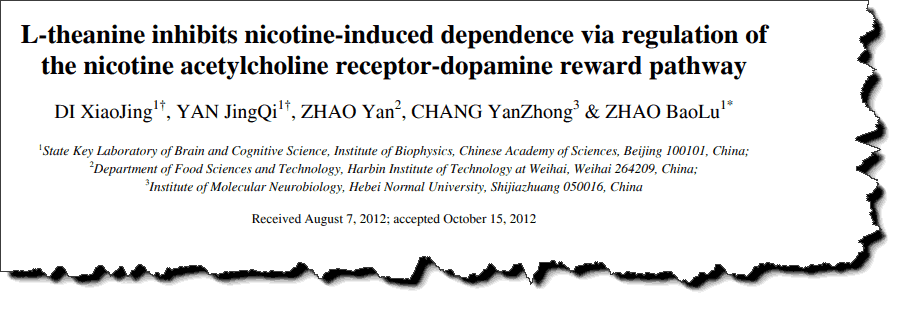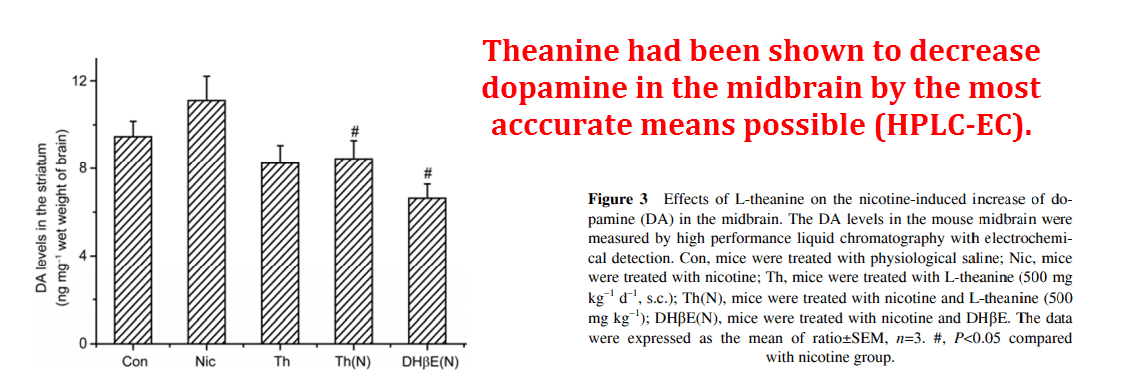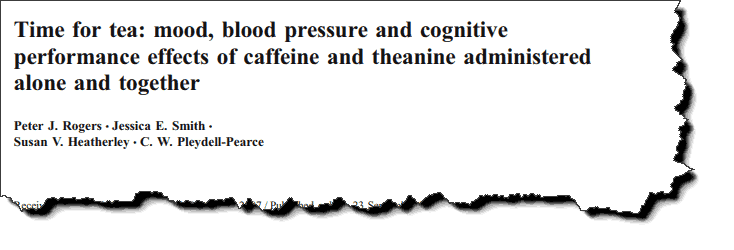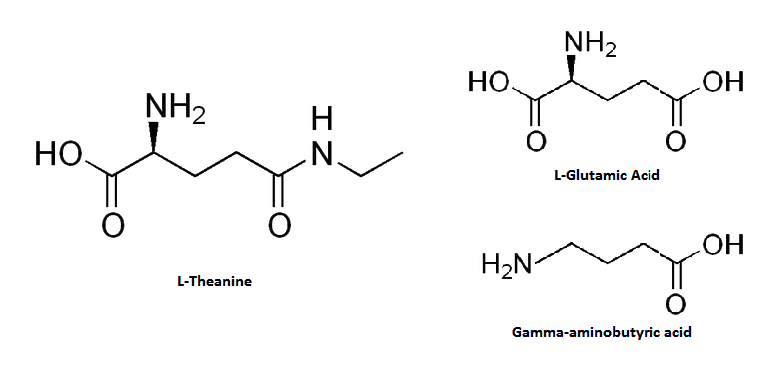
[cmamad id=”25304″ align=”center” tabid=”display-desktop” mobid=”display-desktop” stg=””]
A new take on the “tea or coffee, which is better” debate that focuses on little known facts about both…
—-Important Message—-
Strangest Japanese “sex” practice (watch) NSFW

It sounds crazy… And the mainstream media completely ignores it…
There’s a “quiet revolution” taking place in one of the far corners of the world…
And it has to do with this weird Japanese sex practice that older men are doing…
And how they are having more sex with this weird practice than any other men on the planet…
———-
Which is better for the penis? Coffee or tea?
Coffee or tea…
Tea contains high amounts of theanine.
Theanine is a non-protein amino acid often found adorning lists of nootropic drugs, though its inclusion on such lists is contentious – for a few reasons…
“Theanine is a very soluble amino acid constituting over 50% of the amino content of tea and 1% to over 2% of its dry weight. From these data, it is possible to estimate that a cup of tea contains 20-50 mg of theanine.”
First of all, many of the studies that helped elevate L-theanine to “smart drug” status were conducted by Japanese scientists with special interests.
Take Takashi Yamada and Hidehiko Yokogoshi for instance: These two leading theanine scientists are members of The Ministry of Education, Culture, Sports, Science and Technology of Japan.
Just as with sushi, sake, and soy sauce, green tea is a main cultural aspect of Japan and would be defended for that reason alone.
Japanese scientists have promoted nothing more than green tea and its isolated constituents: theanine, fluoride, and especially epigallocatechin gallate.
This has become worse than the tireless promotion of curcumin by Indian scientists for nearly everything, despite this not even being absorbed after oral consumption.
Moreover, these two Japanese scientists often publish articles with Tsutomu Okubo and Lekh Raj Juneja, two employees of Taiyo Kagaku Corporation – a green tea and food company.
These latter two scientists also published an article in which they investigate theanine’s effect on brain alpha-waves…
…all while shamelessly promoting their trademarked product, Suntheanine.
Nationalistic bias, financial bias, and untoward optimism all distort and corrupt science (not just in Japan).
Yet, despite its GABA-like activity (contentious in itself), relatively unbiased scientists from other countries have shown that theanine has considerable anticholinergic activity.
This is not good for cognition – potentially demoting L-theanine from its coveted “smart drug” status to “banal drug” status, or even worse…
The cholinergic circuit is inarguably the most important system in cognition…
…an observation demonstrated quite plainly and consistently by the lowered acetylcholine found in Alzheimer’s disease.
Lowered expression of acetylcholine receptors in the forebrain and of choline acetyltransferase (the enzyme that makes acetylcholine) is also common in dementia.
This quote is from a Chinese study we will discuss below:
“Further study showed that an amino acid derivative of tea, theanine, exerted an effect similar to the nicotine acetylcholine receptor inhibitor.”
Acetylcholine, neurological function, and B vitamins:
Low brain concentrations of folate and vitamin B12 are also known to cause neurological impairment.
These two vitamins normally work in tandem to create the choline half of the acetylcholine molecule.
And thiamine (B1) depletion is the classic explanation for the mental impairment seen in chronic alcoholism, a condition often called Korsakoff’s syndrome.
Thiamine is a prerequisite for creating the acetyl groups needed for acetylcholine synthesis…
That’s why thiamine deficiency induces the neurological signs of Wernicke’s encephalopathy and beriberi.
Cholinergic drugs such as nicotine reliably increase reaction time and brain glucose uptake.
On the other hand, anticholinergic drugs such as mecamylamine are known to do the exact opposite.
The pro-tea Japanese have reported changes in many neurotransmitter types in the brain following the administration of L-theanine…
But the concentrations of acetylcholine are always conspicuously not reported.
It took a relatively unbiased team of Chinese university scientists to sound the alarm on theanine…
…hopefully putting an end to the unbridled, nationalistic tea-mongering perpetuated by the Japanese scientists.
They demonstrated this just six years ago in a study that showed indisputable evidence for the anticholinergic effect of L-theanine:

The scientists used seven groups of rats with ten rats in each group.
They injected the different groups with different combinations of three compounds:
(1) 0.5 mg/kg nicotine
(2) two dose levels of threonine
(3) the nicotine receptor inhibitor dihydro-beta-erythroidine (DHBE)
And for purposes of analysis, they:
- Determined dopamine levels by the most accurate means possible (high-pressure liquid chromatography).
- Extracted brain proteins, electrophoresed them, and then immunostained them to verify their identity.
- Immunostained the dopamine-producing enzyme tyrosine hydroxylase in sections of the brain’s substantia nigra, the dopamine-producing region…
They found a predictable increase in both dopamine and the enzyme responsible for making it (tyrosine hydroxylase) in the nicotine group.
However, they found that this effect was abolished when either L-theanine or DHBE were also given.
“The results showed that levels of dopamine in the midbrain increased significantly after two weeks of nicotine treatment, while pretreatment with the inhibitor of the nicotine receptor (DHBE) or L-theanine inhibited this increase.”
Dopamine is a catecholamine similar in structure, effect, and importance to epinephrine and norepinephrine.
It occupies a central role in movement as the main neurotransmitter of the basal ganglia.
(The basal ganglia is the brain region positioned atop the spinal cord that routes nervous impulses like a switchboard.)
Dopamine controls how we integrate sensory information into physical movement.

We do need dopamine for confidence and action.
Back to the Yamada/Juneja studies sponsored by the Japanese government and industries…
They did show a transient spike of dopamine 120 minutes after administration of L-theanine… Sounds promising…
But they had to inject the L-theanine directly into the brain to accomplish this.
Ostensibly, they did this because it was the only way to demonstrate the beneficial increase in dopamine and serotonin they were looking for.
In fact, by their own admission, L-theanine actually blocks brain uptake of neurotransmitter precursors when given orally or intravenously.
This quote is from one of the Japanese studies:
“On the contrary, the concentrations of large neutral amino acids such as phenylalanine, tryptophan, threonine, tyrosine, and branched-chain amino acids, which were incorporated via L-system, decreased significantly by a high dose of theanine.”
In this way, this amino acid acts somewhat like aspartame or phenylalanine…
Theanine enters the brain at the expense of tyrosine and tryptophan, the two amino acids we need to synthesize dopamine and serotonin.
Lowering serotonin can generally be seen as a good thing in most people.
But there are certainly ways to do this (e.g. gelatin) that don’t involve lowering dopamine and acetylcholine in the process – and the acetylcholine receptor!
One of the Japanese studies showed that brain acetylcholine receptors were diminished in their L-theanine group of mice, relative to the nicotine group.
And this showed that L-theanine actually blocked the nootropic action of nicotine.
According to Yamada (the Japanese scientist):
“When mice were pre-treated with L-theanine, the upregulation of the α4β2 nAChR [nicotinic acetylcholine receptor] subunits were inhibited in the ventral tegmental area (VTA), prefrontal cortex (PFC), and nucleus accumbens (NA)… And the upregulation of the α7 nAChR [another nicotinic acetylcholine receptor] subunits induced by nicotine were inhibited in the VTA and PFC…”
Of course they were optimistic about this latter finding, proposing a smoking cessation function to L-theanine.
But leave it to just about any scientist to gladly propose a way to utilize their research regardless of any financial bias on their part, or lack thereof.
Optimism and utility are prerequisites for scientific articles…
Yet, according to Yan, one of the scientists from the Chinese studies, results do suggest that L-theanine works to inhibit nicotine dependence.
In an ancillary experiment, the Chinese researchers also found an increase in glucose flux in human cells after nicotine administration – a classic effect of the drug.
Yet this pro-metabolic effect of nicotine, like all others, was completely abolished by L-theanine.
According to Yamada of the Japanese studies:
“When cells were pre-treated with L-theanine or the inhibitor of the nicotine receptor (DHBE), the fluorescence intensity of cells reduced significantly when compared with cells treated with nicotine alone.”
The other classic effect of nicotine, besides increased glucose flux, is reaction time.
And in accord with this dawning recognition of L-theanine as an anticholinergic agent, reaction time was also found to be negatively affected.
English scientists with no dog in the race demonstrated this years earlier:

This study used 48 humans between 18 and 28 years of age.
They gave them either 200 mg of L-theanine, 250 mg of caffeine, a placebo, or some combination.
The study focused on self-assessed rating of anxiety, alertness, and mood.
It also subjected the participants to a visual probe task.
We all know that tea tends to relax despite its significant caffeine content.
And perhaps that is due to the L-theanine found in tea.
According to Rogers of the English study:
“Theanine slowed reaction time on the visual probe task.”
They showed that L-theanine largely offsets the effects of caffeine in “alertness ratings” and reaction time…
But they didn’t emphasize the effect on reaction time.
This omission could have been due to optimism bias as I mentioned before.
The authors essentially buried this finding deep in the text, giving it merely an offhand mention.
[cmamad id=”25305″ align=”center” tabid=”display-desktop” mobid=”display-desktop” stg=””]
But many other studies showed the same effect of L-theanine on reaction time.
Two of them, published in 2007 (by Manuel Gomez-Ramirez of New York and Crystal Haskell of Newcastle upon Tyne), reported an elongation of reaction time after 250 mg of L-theanine.
According to Haskell:
“L-theanine was associated with a detrimental effect on performance of serial sevens and an increase in ‘headache’ ratings. The impairment to serial sevens, a largely attentional task, is supportive of findings from Gomez-Ramirez et al. (2007) showing impairment to reaction time on an auditory attention task.”
According to a 1998 Japanese study, theanine also lowers blood pressure.
This effect is explicable through either acetylcholine inhibition or its established GABAergic activity, according to a 2007 Japanese study.
Theanine is, in fact, quite similar to GABA in structure:

It has been shown to have very similar pharmacokinetics to glutamine, the direct precursor of gamma-aminobutyric acid.
Theanine is actually identical to glutamine save for an aminoethyl group.
According to another Japanese scientist (Kimura) in 1970:
For this reason, the known ability of theanine to increase brain GABA concentrations suggests it plays a simple precursor role…
. ..which is a mitigating factor for L-theanine, as it actually appears to reduce every other neurotransmitter in the brain as well.
It could simply be that a fraction of theanine actually becomes GABA after entering the brain, perhaps via enzymes: (1) monoamine oxidase followed by (2) glutamate decarboxylase.
Kimura said:
“The intracerebral level of gamma-aminobutyric acid [GABA] was shown to increase significantly at 30 minutes following the intraperitoneal administration of theanine in mice.”
Yet cyclic forms of L-theanine have also been isolated from tea.
Just as with most 5- and 6-atom molecules bearing an amino group on one end and a carbonyl group on the other, theanine has been shown to bend back around on itself to form a cyclic product.

This cyclic theanine is somewhat analogous to the barbiturates, a class of molecules based around a core structure of barbituric acid:

Either way, theanine certainly does have relaxing effects and has even been shown to directly offset the main effects of caffeine and nicotine.
These two nootropic agents are partially responsible for the popularity of coffee and cigarettes…
Yet they often show up on the same list as theanine, their antagonist.
So, really, including L-theanine on the same list as the others, as is often done, would lead nowhere.
Also, including theanine on such a list might imply that tea is better than coffee, as “it has both”…
Yet that would be quite misleading.
It would probably be better, in my opinion, to save cupboard space for better things like coffee and methylfolate…
…unless, of course, you’re looking for a relaxing agent and not a “nootropic drug.”
—-Important Message—-
True story from a single guy:
“She texted me at 1 in the morning…
She’s a total babe – young, blonde, and petite.

I met her at my local bar, and then she texts me to come over…
She’s so HOT… But the thing is, she lives almost an HOUR away.
And I had just gotten home from a long day of work and I was dog tired.
But I knew I wanted to have sex…
That’s when I remembered your simple little solo activity that could help me right here, right now.
So I did the solo activity before getting on the road, and immediately I felt myself getting hard…
To my satisfaction, I was getting hornier and hornier during the whole ride there…
By the time I got to her house, I had a massive erection just waiting to cut loose.
And this is all because of this simple solo activity… Thanks, Matt!”
Here’s the solo activity men are using to get engorged erections for 30 minutes or longer…
———-

- 寺島健彦, et al. "環状テアニンの脳線条体からの脳内神経伝達物質の放出に及ぼす影響について." 科学・技術研究 (2017) https://www.jstage.jst.go.jp/article/sst/6/2/6_107/_pdf
- Yan, JingQi. "The cessation and detoxification effect of tea filters on cigarette smoke." Science China Life Sciences (2010) http://library.ibp.ac.cn/html/slwj/000277959800001.pdf
- Di, XiaoJing. "L-theanine inhibits nicotine-induced dependence via regulation of the nicotine acetylcholine receptor-dopamine reward pathway." Science China Life Sciences (2012) https://link.springer.com/content/pdf/10.1007/s11427-012-4401-0.pdf
- Rogers, Peter. "Time for tea: mood, blood pressure and cognitive performance effects of caffeine and theanine administered alone and together." Psychopharmacology (2008) (2017) http://dx.doi.org/10.1007/s00213-007-0938-1
- Anti-Stress, Behavioural and Magnetoencephalography Effects of an l-Theanine-Based Nutrient Drink: A Randomised, Double-Blind, Placebo-Controlled, Crossover Trial https://www.ncbi.nlm.nih.gov/pmc/articles/PMC4728665/
- What You Should Know About L-Theanine https://www.healthline.com/health/l-theanine
